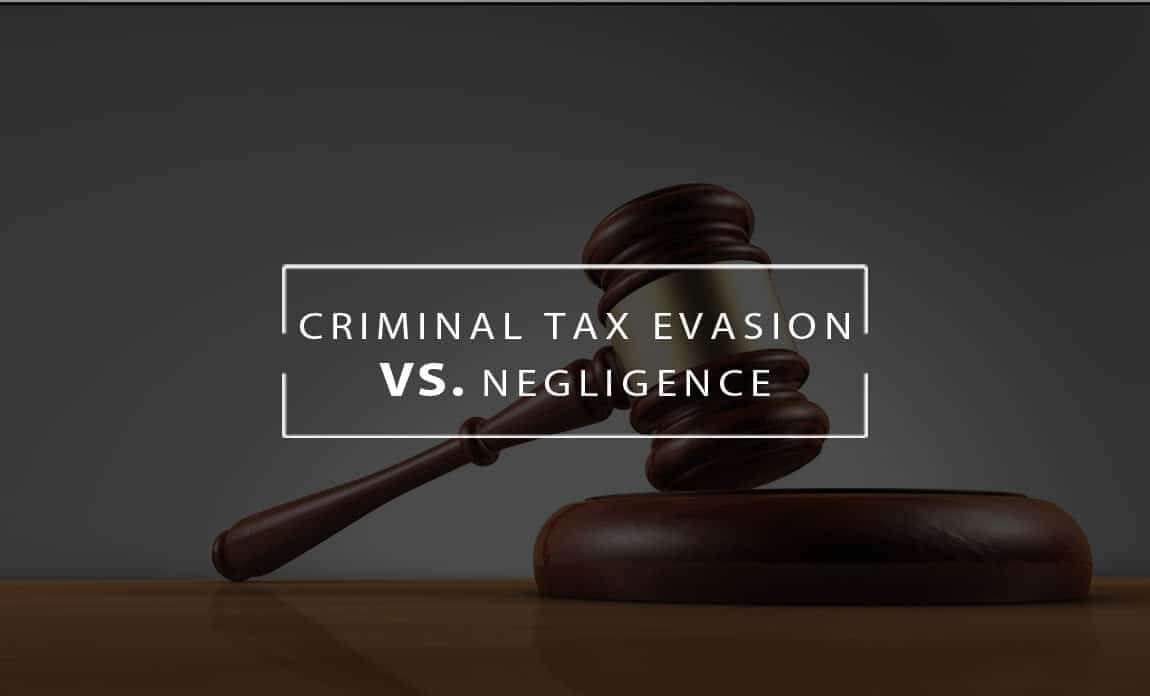How Silver Law Can Help Represent You in Phoenix Criminal and Civil Tax Litigation How…
Ignorance of the law is not a defense of the law. But ignorance of the law can show that there was no criminal intent. It can mean the difference between being found guilty of negligence or of criminal tax evasion — charges that carry very different penalties if you are convicted.

Of course, ignorance of the law is not the only factor that could explain the difference between negligence or criminal tax evasion. Here are a few other criteria that the IRS would use to make the determination:
The IRS would likely find that a person has committed criminal tax evasion if it can find evidence of intent to commit fraud or to evade tax responsibilities. This could include:
Not all of these are definitive signs of tax fraud. However, these will all send up red flags that will prompt a tax representative to take a closer look at your return or to initiate an audit.
Many people make mistakes on their tax returns, especially if they file their returns themselves. These mistakes are not necessarily intentional, which means that they would likely be classified as simple negligence.
Common mistakes that the IRS sees include:
Just because these mistakes were unintentional does not mean that you won’t face penalties. It just means that you won’t likely face criminal penalties, but will most likely face a 20 percent penalty. You could pay a 75 percent penalty if you are found guilty of criminal tax evasion of civil fraud.
For simple errors, the IRS is likely to only send you a letter asking you to correct your return or to provide documentation showing that the error is not an error after all. However, if there are multiple or egregious errors on your return, you will likely be subject to an audit.
During the audit, you may be asked to produce documentation to support all the information provided on your return, including for all your deductions and your claimed expenses. The auditor may also comb through your financial ledgers and accounts to discover evidence of unclaimed income or other deception.
Depending on the extent of the discrepancies discovered by the IRS, you could go through a lengthy audit process that can include not only the tax return in question but also many previous years’ worth of tax returns.
The professionals at Silver Law PLC in Arizona have been representing clients throughout the state in criminal tax litigation cases for many years. Our Phoenix criminal tax lawyers fight tirelessly for clients to minimize their criminal liability for tax evasion and fraud. We work with both corporate and individual clients, and we draw upon an extensive network of experts and resources to reduce your tax liability. We also represent clients in tax audits, collections, foreign tax issues and more. Whether you need a criminal tax lawyer or a legal ally to represent you through your routine audit, we can help you. Call us in Arizona today to schedule a free consultation with one of our tax attorneys.
Published By:
7033 East Greenway Parkway, Suite 200
Scottsdale, Arizona 85254
Office: (480) 429-3360
Website: https://www.taxcontroversy.com
Dirty Dozen Tax Scams: Be Careful Of 'Mills' Pushing IRS Debt Solutions Included in the…
IRS Recovers Funds From Fraudulent COVID Tax Credit Program Despite the IRS's efforts to reclaim…
Shocking Court Verdict Shakes Corporate America: Alabama Ruling on CTA Could Change Everything! In an…
Alabama Court Ruling On The CTA: Implications On Nationwide BOI Reporting Companies March 1, 2024,…